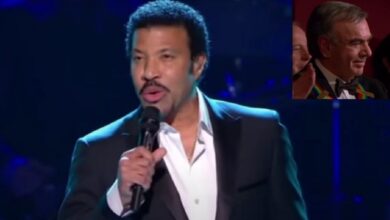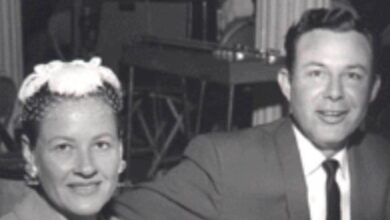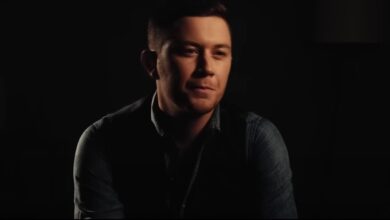According To Priscilla, This Song Is Where Elvis Truly Pours His Heart Into The Performance.
Elvis Presley’s performance of “If I Can Dream” is a poignant and powerful example of his ability to use music as a vehicle for social commentary. Recorded on June 23, 1968, during the iconic “Comeback Special,” the song emerged as a response to the turbulent political and social climate of the 1960s. Its release came at a time when America was grappling with significant challenges, including the civil rights movement and widespread social unrest.
Written by Walter Earl Brown, “If I Can Dream” was inspired by the tragic assassinations of Martin Luther King Jr. and Robert F. Kennedy, which had a profound impact on the nation. The song’s lyrics reflect a deep yearning for peace, unity, and understanding, capturing the collective hope for a better world. The verses speak to the struggles of the era, expressing a desire for change and the belief that dreams and aspirations can lead to a brighter future.
Elvis’s delivery of the song is characterized by its emotional depth and passionate intensity. The arrangement features a stirring combination of gospel choir and full orchestra, which amplifies the song’s dramatic and inspirational message. The choir’s harmonies and the orchestral backing provide a rich and powerful sound that complements Elvis’s heartfelt performance. The song builds to a powerful climax, where Elvis sings with fervor and conviction, embodying the song’s themes of hope and redemption.
The chorus of “If I Can Dream” encapsulates its core message: “We’re lost in a cloud, with too much rain / We’re trapped in a world, that’s troubled with pain / But as long as a man has the strength to dream / He can redeem his soul and fly.” These lines emphasize the idea that despite the difficulties and suffering in the world, the strength of one’s dreams and aspirations can offer solace and the possibility of change.
Elvis’s rendition of “If I Can Dream” stands out not only for its musical excellence but also for its significance within his career. The “Comeback Special,” officially titled *Elvis*, marked a major turning point for Presley, reestablishing him as a major musical force after a period of focusing on films. The performance of “If I Can Dream” is often cited as one of the highlights of the special, showcasing his ability to deliver a song with profound emotional resonance.
The impact of “If I Can Dream” extends beyond its initial release. The song has been recognized for its powerful and enduring message, which continues to resonate with audiences today. Its themes of hope, unity, and the transformative power of dreams are timeless and relevant, making it a significant piece of Presley’s legacy.
In addition to its impact as a song, “If I Can Dream” has been remembered as a testament to Elvis Presley’s artistic growth and his commitment to addressing important social issues through his music. His performance remains a powerful reminder of his ability to connect with audiences on a deeply emotional level and to use his platform to convey messages of hope and inspiration.





